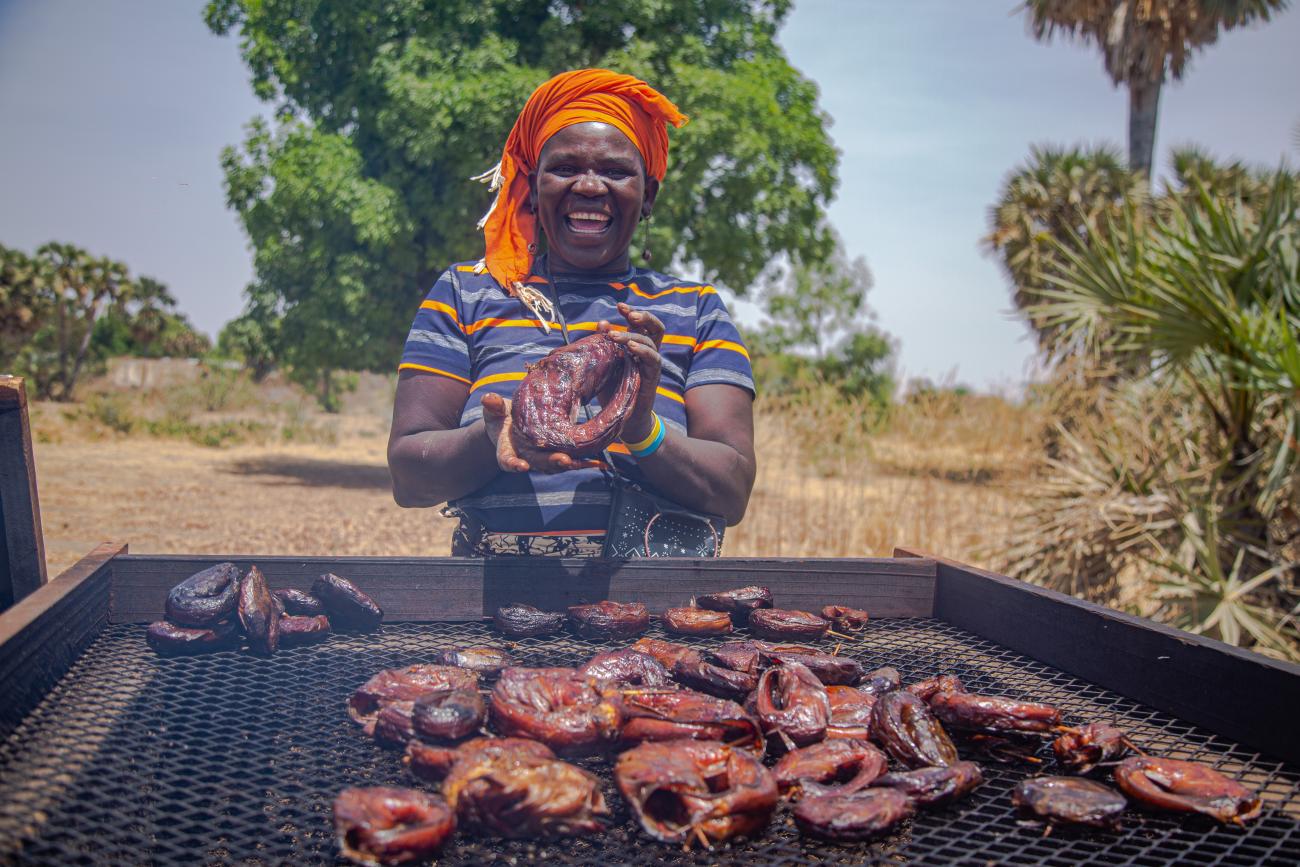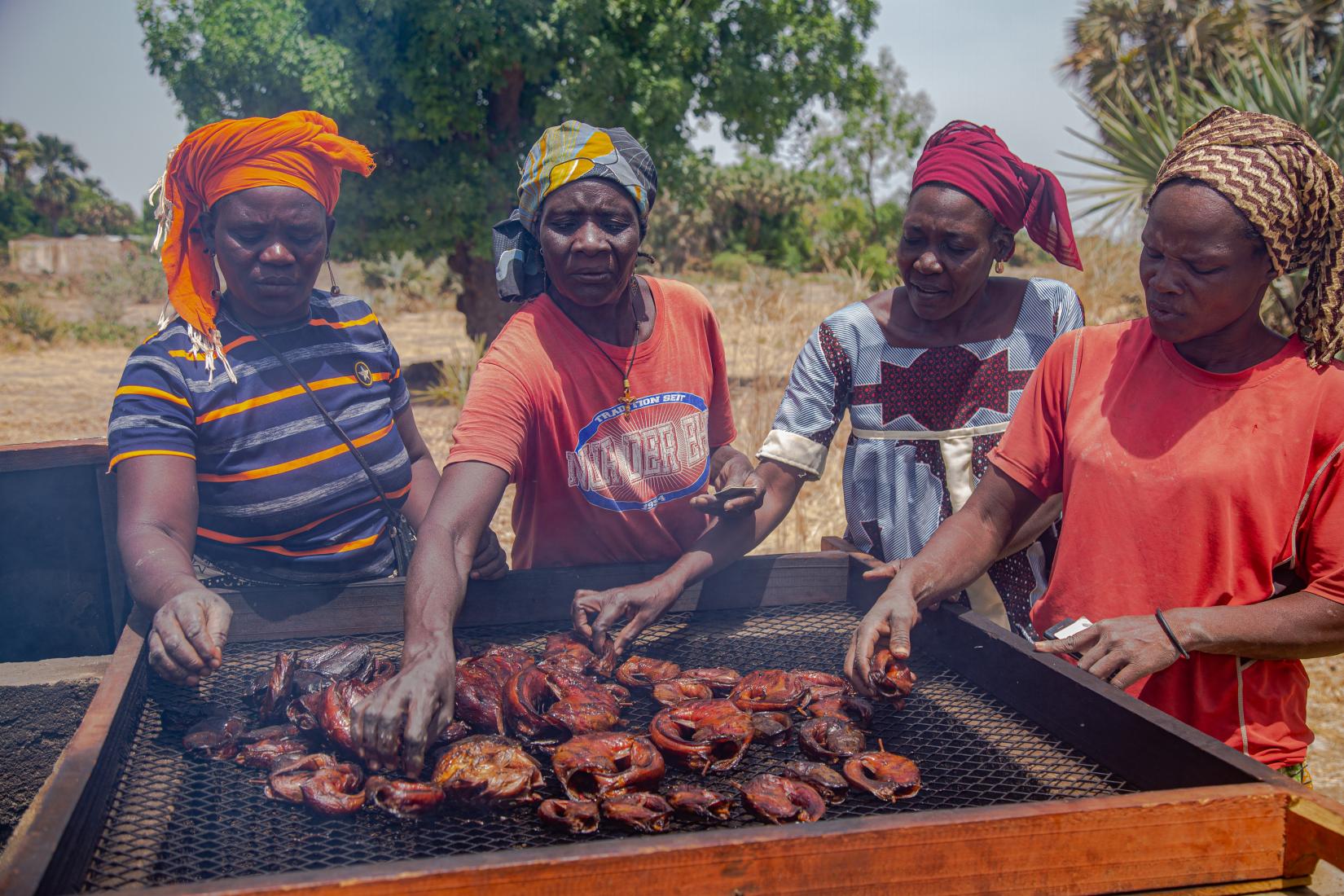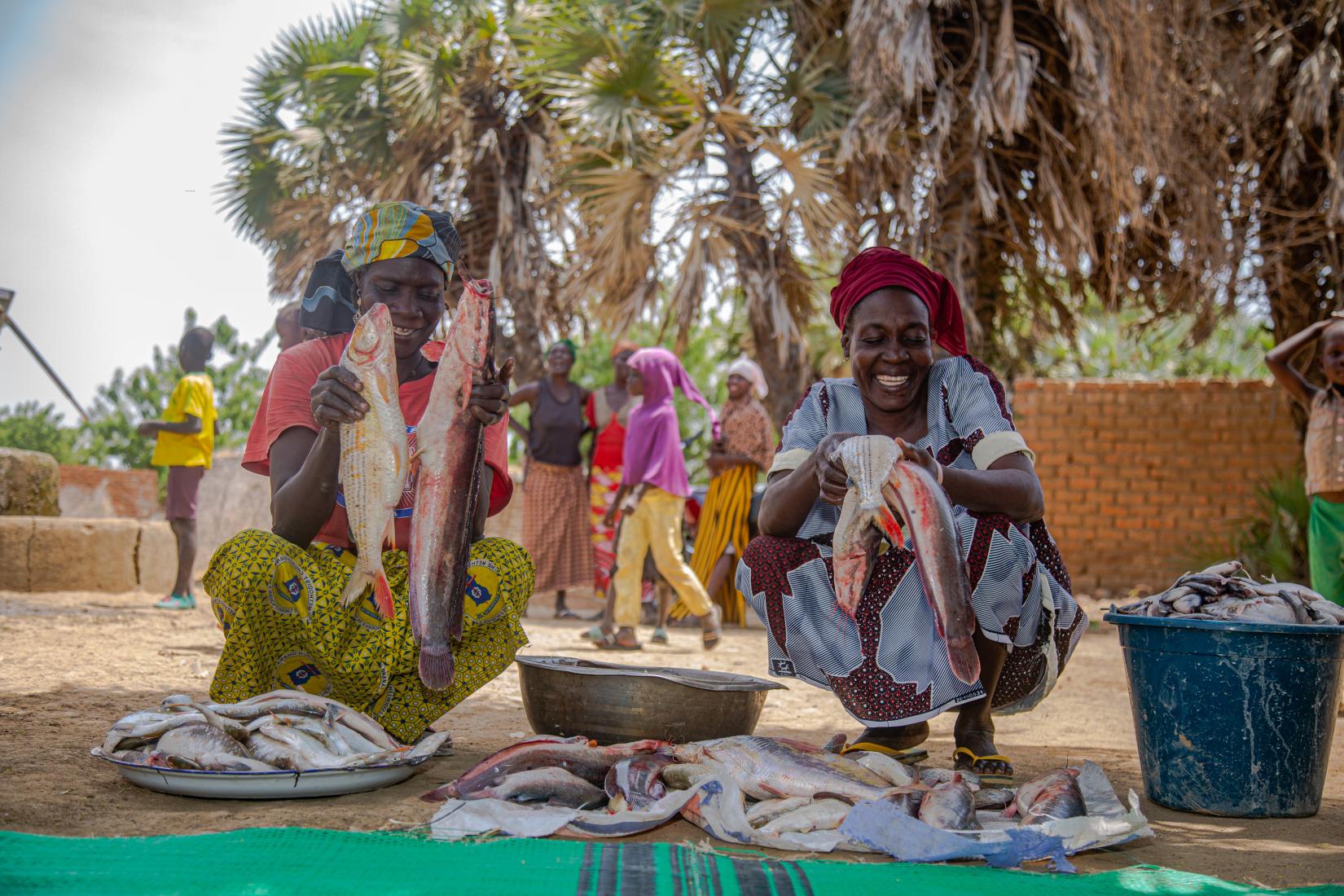Fish smoking ovens help internally displaced fish processors in Cameroon start again

"I lost everything: my activities, my equipment for smoking fish which I had to sell. Everything was destroyed, even my house.’’
Sitting on the Logone River in the Far North region of Cameroon, right on the border of Chad, Logone-Birni has experienced more than its share of conflict and upheaval. The Boko Haram insurgency, which has been affecting the Far North region for nearly a decade, has meant that many have suffered violence and disruption.
But in December 2021, violent clashes erupted once again. This time the conflict arose between inland fishers, ethnic herders and farmers over limited water resources, a result of climate change and declining rainfall. Tens of thousands of people were forced to flee for their lives.
For years, fishers, herders and farmers have relied on the same river and other inland water bodies for their livelihoods. But conflict over these increasingly scarce water resources has forced fish processor, Fadmee, and many others to leave their homes.
Fadmee recalls, "I lost everything: my activities, my equipment for smoking fish which I had to sell. Everything was destroyed, even my house.’’
Despite her personal losses, when the conflict died down a couple of months later, Fadmee was relieved to return to her hometown of Honkol in early 2022. She joined many others who were looking to rebuild their lives and livelihoods.
Supporting the reintegration and economic recovery of Internally Displaced Persons (IDPs), the Food and Agriculture Organization of the United Nations (FAO) provided 18 Chorkor fish smoking ovens and capacity training in sustainable fish smoking methods to fishers in several villages of Logone-Birni.

Better quality, fewer losses
With FAO’s support, 60 women and 26 men were trained in the construction and operation of the Chorkor ovens and acquired improved smoking techniques. These trained women and men then organized sessions in their villages to share the best practices they had learned.
In this region, like many others in Africa, hot smoking has been the traditional method of processing fresh fish for sale. The introduction of ovens, such as the Chorkor, enhances the quality of finished products. With up to 24 drying racks, these ovens also have the capacity to boost production of smoked fish and reduce food losses, which ultimately means greater incomes for fishers like Fadmee.
From an environmental point of view, the Chorkor oven requires less wood for fuel consumption, reducing pressure on natural resources; it also emits little smoke, which minimizes the health risks associated with smoke inhalation, burns and heat exposure.
There are also social benefits. The FAO project has given IDPs and host communities a chance to work together. Linked to the installation of the ovens, 18 groups were established to collaborate on these activities, all the while promoting peaceful coexistence and strengthening social inclusion.
Fadmee says her work is now less labour intensive, and she produces better quality smoked fish.
"Before FAO introduced the Chorkor, I used traditional ovens, and it was difficult for me. This new smoking method is very good because it allows me to handle fish easily, and I spend much less time and effort," she says.
"Today, I manage to smoke fish up to four times a week, and my profits help me meet my family's needs." Fadmee continues, "I plan to increase my smoking production and build another Chorkor oven.”
As part of this project, FAO also distributed fishing inputs to 127 households, a total of nearly 900 people.
“We wish to support the development of responsible fishing and the reduction of post-harvest losses in the areas bordering the Logone River, hence the need to set up Chorkor ovens in the other villages of Logone-Birni and the surrounding municipalities,” says Athman Mravili, FAO Representative in Cameroon. “Internally Displaced Persons, returnees and host communities need our support to regain their footing.”
Conflict and climate-induced crises and the displacement they create are a major cause of malnutrition and food insecurity worldwide. Together with its partners, FAO is working to reduce these impacts by supporting the food security and livelihoods of those affected.













